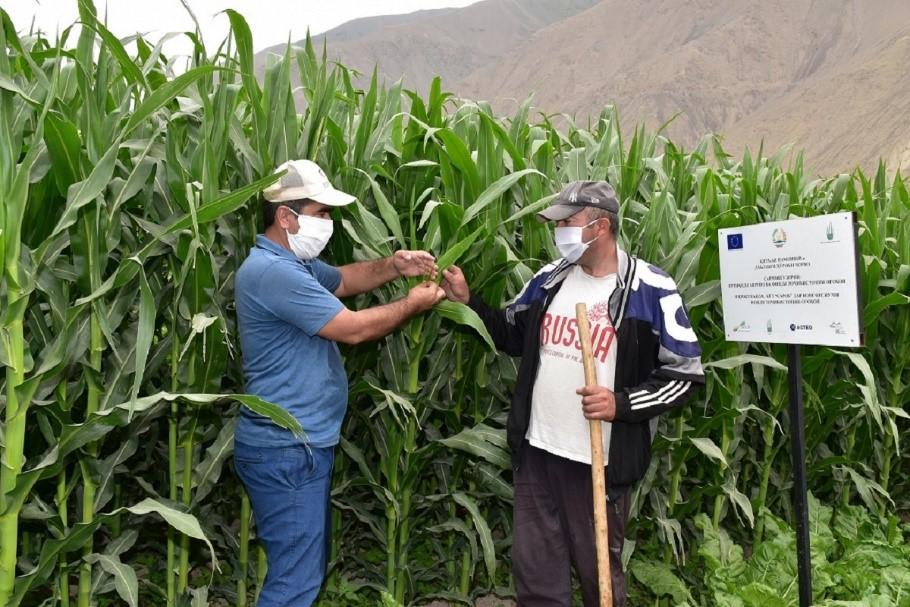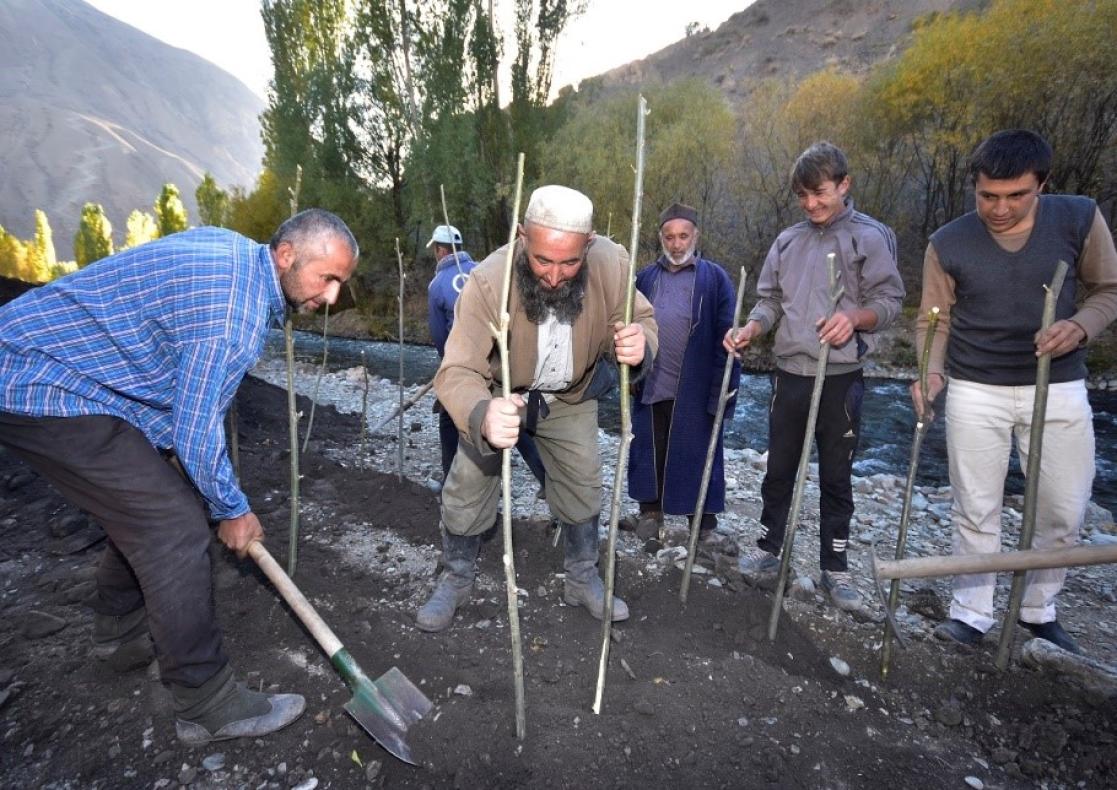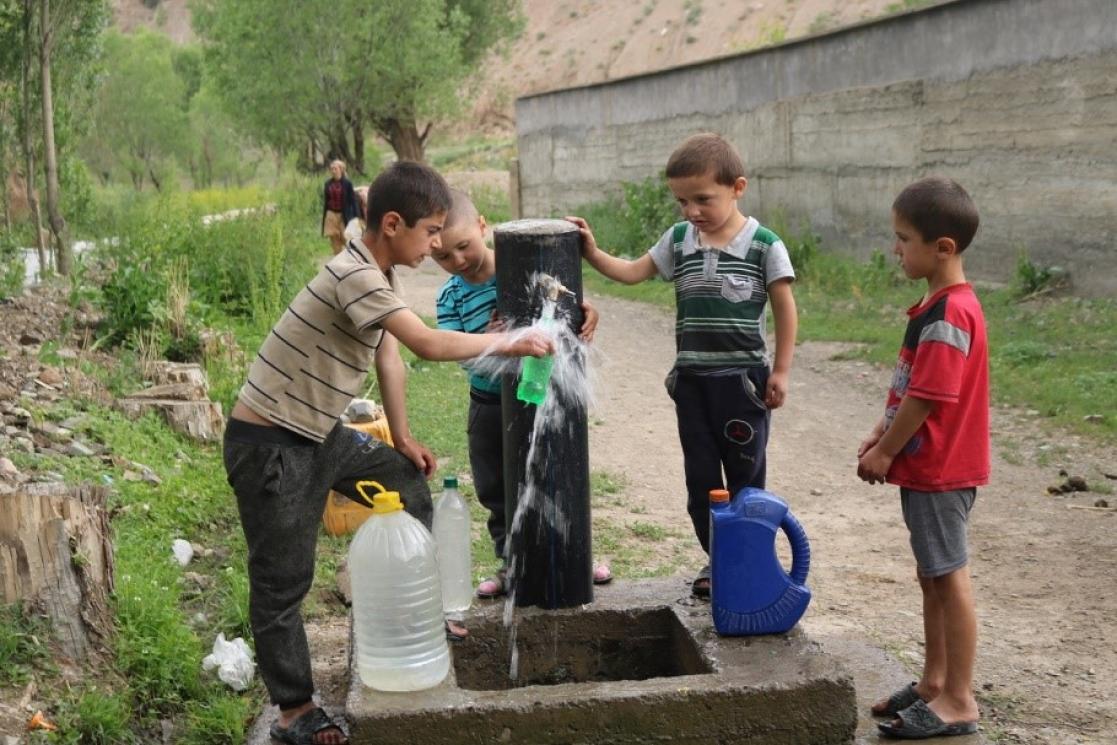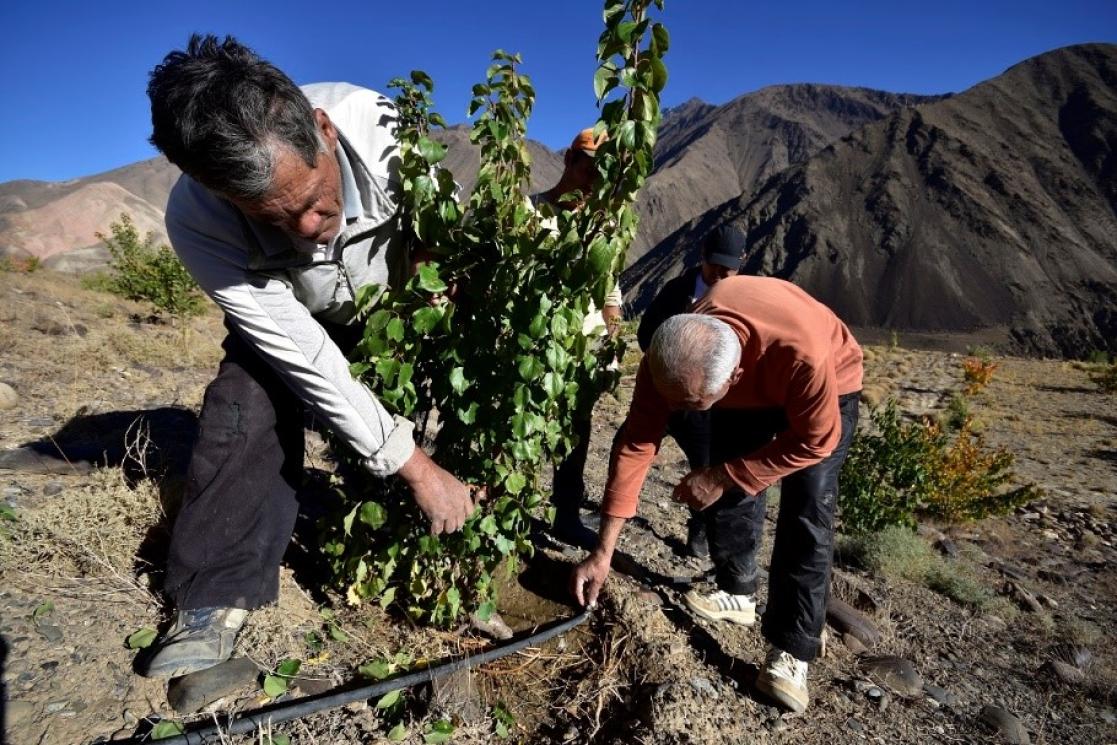Improving livelihoods and food security through sustainable natural resource management in Tajikistan’s remote Zarafshon valley

“Improving livelihoods and food security through sustainable natural resource management” is funded by the European Union (EU) and implemented by the Aga Khan Foundation (AKF) in close cooperation with implementing partners: Mountain Society Development Support Program (MSDSP), Agency for Technical Cooperation and Development (ACTED), NGO CAMP Kuhiston and Non-commercial cooperative “Sarob”. The programme started on June 2016 in the Zarafshon valley in the Sughd region of Tajikistan and will be completed in December 2021. The total budget is 6,250,000 Euros of which the EU contributed 80% and the partners contributed 20%.
The programme’s overall objective is to:
- Improve accessibility, provision and usage of water and natural resources for promoting greater sustainability in the upper catchments of the Zarafshon valley.
The project specific objectives include contributing to:
- Poverty reduction through improving rural livelihoods.
- Food security through improving food availability, accessibility and diet.
The programme operates in four ways:
- Enhancing sustainable biomass recycling and erosion through participatory natural resource management (NRM).
- Improved access to clean drinking water and sanitation through improved collective governance.
- Improved access to energy through the adoption of energy efficient and renewable energy technologies.
- Promotion and integration of conservation-focused climate smart agricultural techniques and practices into agricultural practices.
Enhancing sustainable biomass recycling and erosion through participatory natural resource management (NRM)

Caption: Planting seedlings along the installed river gabion wall to strengthen shore protection in Ghuzn village, Kuhistoni Mastchoh district. Photo: ©AKFTjk
Through an integrated approach, the programme supported rural communities in Tajikistan’s Zarafshon valley to participate in joint biomass recycling, disaster risk reduction and soil erosion activities with the purpose of protecting the lands from different natural influences. This was conducted via the implementation of bioengineering, 11 risk mitigation projects and 700 hectares of pastureland improvement.
Improved access to clean drinking water and sanitation through improved collective governance

Construction of new drinking water supply system in Dargh village of Ayni district helped the local community to access clean drinking water and decrease the rate of water-borne diseases.
This intervention enabled 12,000 people to access clean and reliable drinking water by constructing 14 drinking water supply systems; improving hygiene and sanitation through the construction of 19 public and 350 private latrines; and conducting awareness raising sessions on health and nutrition.
Improved access to energy through the adoption of energy efficient and renewable energy technologies

Installation of drip irrigation system in Ayni district forest nursery near Sayron village to improve the growing of different fruit and forest tree saplings adapted to the local climate and further dissemination.

A member of a producer group practices how to prune trees in summer in intensive orchard in Pokhut village, Ayni district.
This intervention included the establishment of 45 Producer Groups (PGs) and support and training for 47 agricultural groups, including veterinary service providers, veterinarians/livestock breeders, agricultural extension service providers and lead farmers. In addition, agro-demonstration plots on intensive orchards, fruit nurseries and reproductive seed potato (Big Rose) were created.





